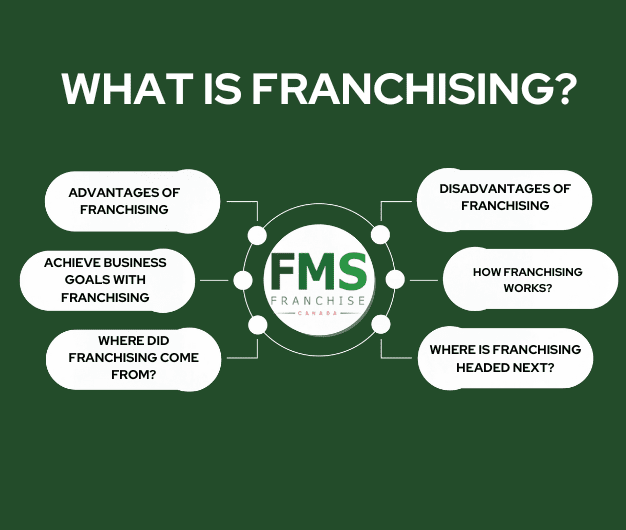
Have you ever dreamed of franchising your own business? If so, you might want to consider franchising. Franchising is a way of running your own business with the help of a bigger brand.

So, what is franchising? If you want to open a burger place you have two options: either starting from scratch or joining a franchise. Starting from scratch can be hard and risky while joining a franchise is easier and safer.
Franchise started in the middle ages, around 9th-15th centuries, when governments granted rights and privileges to landowners and traders. Franchising was used for exploration and colonization to trade in the new world but later, in the 18th-19th century, became a commercial partnership.
1. What are the challenges of franchising?
While franchising offers support, it also requires commitment. Be prepared for long-term dedication, adhering to brand guidelines, and managing royalty fees. Be open to learning and adapting within the existing framework.
2. How do I find the right franchise?
Do your research! Explore diverse industries, compare franchise models, and analyze investment costs. Contact franchisors directly, ask questions, and attend franchise expos to find the perfect match for your skills and goals.
3. How much does it cost to own a franchise?
Initial fees, royalties, and marketing contributions vary widely depending on the franchise and industry. Generally, expect an investment ranging from tens of thousands to millions of dollars. Research specific franchises for accurate estimates.
4. How long does it take to see a return on investment?
Payback periods vary, but many franchisees see profits within 1-3 years. Remember, consistent effort, marketing, and operational excellence contribute significantly to your success timeline.
5. Can I get financing for my franchise purchase?
Absolutely! Many banks and lenders offer franchise-specific loans. Additionally, some franchisors provide financing programs or partner with lending institutions to support their franchisees.
6. Can I sell my franchise later?
Yes, most franchise agreements allow resale under certain conditions. Many franchises have established resale markets or can assist you in finding a buyer. However, understand that the value of your franchise will depend on its financial performance and overall market conditions.
